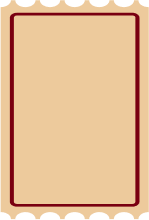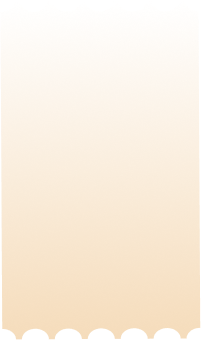Recently, the UK travel and tourism sector has been experiencing rapid growth, significantly contributing to the country's economic development. Hospitality businesses are now focusing heavily on offering innovative products and services to their customers. Customer satisfaction in this sector largely depends on the quality of service provided by the staff. Therefore, there is a strong emphasis on hiring highly skilled personnel capable of delivering excellent service. This report centers on the Royal Hotel, which provides accommodation services. It will explore the most effective leadership styles for the hospitality sector and outline the management processes the hotel can use to achieve success.
Leadership styles within the hospitality
Leadership is the ability or capability to influence members of staff for achieving goals within the organisation. It involves motivating and encouraging people to put their full effort in the task.
The leadership styles plays an important role in creating effective work ambience. No single style is used in one organisation. It changes according to the requirement of organisation. They totally pay attention on efficiency, effectiveness, maintaining profits, completing organisational goals within time, guest satisfaction, etc. Many of the managers adopt a single style for the benefit of organisation and then change it accordingly. Many adopt a combination of two.
As shown in the description Sakia, the executive housekeeper of the Royal Hotel gave a seminar on how and what kind of leadership styles should be applied in hotel to make it quite efficient in hospitality industry (AlMazrouei and Zacca, 2015). So different types of leadership styles are there which can be applied within the organization to help making it work in an appropriate way. The styles can be switched according to the requirements of hotel and management. Different styles are:
Autocratic leadership
These are the type of leaders that holds the maximum power in the
company and are self decisive. They impose their decision on others. In this there is one way communication – top level to bottom. This type of leadership is basically used in hotels where the employees are unskilled, not trusted, etc. Leaders only decide what is good for them. This type of system is called formal system.
You Share Your Assignment Ideas
We write it for you!
Most Affordable Assignment Service
Any Subject, Any Format, Any Deadline
Order Now View Samples
Basically this type of leadership is applied in business especially hotel business as being this much strict to employee will make them create hatred for their leaders and they will be less interested in doing their work .Their morale gets down if the leader keeps on scolding them or insulting them . So to create a better environment a leader must be good (Avolio and Mhatre, 2012).
Democratic Leadership
This type of leadership is good where leaders encourage people /staff to participate /involve themselves in decision making process. Every suggestion is considered and shared with all employees. This basically slows the process but it keeps the staff active and feel motivated to complete their given task on or before time. The final word is of the leader but everyone is involved in the process. It helps employees show their potential and they never hesitate to interact with their seniors on organisation matters-good or bad.
This type of leadership is liked by everyone so it is the most popular. As it gives everyone the freedom to think, work, interact, help, etc. It can be applied to any organization. In case of hotels, this type of leadership can provide best of hospitality which satisfy guests (Barrick and et.al., 2013). If employees are motivated and happy, they serve the guests with full dedication and leaves a great impact on them .This in return is beneficial for hotels and their hospitality.
Transformational leadership
This type of leadership includes system where managers and staff motivates each other to accomplish high level of goals. They encourage each other and boost other's morale. They help each other to reach high level of expectations. They support people to get inspired and look for hotel's welfare.
This is very important style and can be used in all types of organisation. It creates vision, trust among all, build relationships, motivates people to create their vision according to organisation's requirement (Collinson and Cook, 2013).
Transactional leadership
It is a traditional type of leadership style which believes in either giving rewards or punishment on the basis of results given by employees. It is a style which holds formal position in organisation but even then it is successful because it depends totally on self motivated and skilled employees who creates a structured environment in the organisation.
They especially focus on short term goals, increasing efficiency. They are concerned with rules and regulations that must be followed.
Leadership traits
Positive attitude
A leader must be positive in his thoughts and view that he express. People only follow the one with good thoughts and fresh feelings. So no negativity. Negativity is not allowed when talked about a leader. A leader has all potential. All he need to do is to be positive. Rest all works well.
Eg: if a hotel manager has a positive attitude ,he can conquer every situation and can be a big support in difficult cases.
Adaptability
A good leader especially in hotel has the ability to adjust and adapt the situation in organisation. They are not scared to take new challenges that comes their way in completing their goals. They are flexible in every condition and are ready to tackle any problem. They have the ability top adapt new changes quickly and also convince people to do so (Daft, 2014).
Passionate
As the name says a leader has a great quality of being passionate. Leader's passion can be seen in the task he/she performs. The level of excitement, kindness, energy a leader has, is a form of passion. A leader must be full of passion in order to make his followers be energetic while performing task. On hotels, guests can make a clear difference when a leader is passionate in showing his strength and this gives a good feedback to industry (Daicoff, 2012).
Good communicator
But before everything, a leader must have effective communication power which means he should have both listening and responding power. Once you communicate and get to know what the problem is without any interruption, it will be beneficial for you in giving correct solution. This way you can become more trustworthy.
For eg: If in hotel , any guest complains about the inconvenience caused . When leader speak to guest and listen to them carefully ,then he can fix the problem and offer an apology. This way any situation can be solved .
Responsible
A Leader must be responsible enough to run an organisation. When he is responsible in his duty, he can set a example for others to be the same. When a people follow a leader, they get inspired by their behaviour, they personality, their attitude towards life, work, etc. So a leader has to be more responsible to create a good, effective and efficient organisation. He has to maintain his identity in front of all his followers. He must be careful in the work he is doing. He should be team oriented i.e. he needs to be interested in growing skills of other people to make them focus on task rather than just focusing on task by self (Frick and et.al., 2014).
These all characteristics of leadership are very useful in creating effectiveness. They show the qualities of a leader which the one should possess in order to create a healthy environment within the organisation.
Management process
Planning
Planning is the first step in management process. Planning is basically setting goals.It involves decision on what is to be done, how it is to be done, when it is to done and by whom it is to be done. Planning helps us in making efficient decisions about the objectives and path to be taken to achieve those objectives. So for hotel management, first planning is needed.
Organising
Organising is next step in management. It involves organising of all materials that are useful for a business. It brings plan one step nearer to realisation. It means give a structure to planning. It can be grouping activities, determining and defining activities, assigning them to specific people. It also includes promotion, demotion, transfer, dismissal, etc (Fullan, 2011).
Staffing
Staffing is the next phase in management process. It involves managing organisation via proper selection of staff to fulfil the roles assigned. It includes proper selection ,training and development, evaluation, etc. The top level officers (CEO)takes the staffing function for a level lower than them (managers) who in turn perform these functions for sub- officials and they continue for employees and so on. Staffing is a process of selection of qualified and skilled people.
Directing
Directing is actually starting the work. It involves guiding, supervising, motivating, encouraging officials to achieve certain objective. It is to tell the staff how they are performing. A Hotel manager has to instruct the staff what to do ,how to do,when to do. Leading the staff systematically builds confidence within them. Inspiring the staff energies them in completing their work in right way. Giving right direction is very important part (Hakanen and van Dierendonck, 2013).
Controlling
Controlling is the last phase of management process. It includes evaluation of the process whether the work done is according to the plan, whether it is going to achieve our objectives or not. It involves knowing standards of our objectives, comparing the work with the plan, finding differences between actual and plan, taking right decisions to make it efficient if not.
For e.g. Renovation is needed in hotel without disturbing the guests already staying. Hotel is required to have a kids play area (indoor).
So for this a proper planning is needed as to what all resources are required, where this area will be developed, in how much time will it complete, etc. All these raw things are planned and decided in planning section.
All the resources will be collected and organised properly to get them ready for use, the various tasks like getting games for kids, making slides, pool, etc are allotted to different people for faster progress, the construction work is given to engineer, etc
Now in staffing part , managers have to decide and choose who is suitable for what kind of work. And to make them learn how to assemble swings, slides, who will fit those slides in the area. Staffing is hiring correct people for correct work (Iqbal, 2013).
Now directing includes the start of the work physically. The workers will start working on construction. The other worker will assemble the play games. In this process, manager comes and gives motivation to workers by appreciating their work.
Last comes the controlling part in evaluation is done. The manager will evaluate the final work done by the workers if it is exactly according to the plan. Like he will check if all the games are placed correctly or not, all the slides are fitted properly or not, the pool area is properly made or not, is the play area attractive or not (suitable for kids). Manager will compare it from the plan that was made. If its not up to the mark, he will give ideas to make it efficient (Kathy and Deborah, 2007).
Organisational responsibility
The main responsibility of managers is to main the productivity of organisation like we can say hotel. Their main aim is to make policies, procedures, organise few sessions for employees to help them communicate, increase employee output, etc. The managers can create good corporate leadership systems by getting those people away who demotivate others, making new and exciting ideas for completing tasks, etc.
When talked about hotel Royal and its productivity, its a very good hotel and to main its level in market it needs:
Innovative staff who can work selflessly with higher capabilities and motivation. It includes higher officials too like employee, HR, manager, etc. because everyone needs proper direction, support of their seniors (Kaur, 2015).
Manager and leaders must be effective. They play an important role in hotel management. Manager has the ability to develop plans, hire staff, motivate them and execute the plan. They can hire/retain staff those are not efficient.
Some strategy must be made to keep the productivity of hotel high as the competition is very high. A plan and proper strategy can lead to successful organisation.
Every member of staff, subordinates must know their role clearly. Everyone should understand their role and work accordingly and with full dedication. Managers need to communicate with everyone to make them understand their roles.
Sharing and participation improves productivity. When hotel manager creates some communication session for staff, they will interact, share their ideas, develop positive feelings within self and will help each other in need. That can lead the hotel business to high productivity when everyone will work in unity (Krogh, Nonaka, and Rechsteiner, 2012).
Manager must keep an eye on every action going on in hotel. A level of control on freedom is must. Too much freedom should not be given to staff. Sometimes they can have advantage of the trust given by managers or higher officials and this can be a loss in productivity.
Managers can also provide some sore of exposure, challenges, opportunities to staff to bring employee excitement, energy, motivation.
Managers must hire staff with good communication skills. Having unskilled staff can limit the success of hotel business. Hiring more qualified staff and self-motivated people will be more helpful as it will increase the productivity oh hotel in corporate sector.
The budget /funding should be appropriate when completing the task as it can reduce the effectiveness. Before starting any task, the manager should check for proper budget availability.
Priorities are important. To know what is more important and helpful for hotel management is the first thing for manager. He must know the priorities of hotel and get into work to make them execute first (Lee and Lawrence, 2013).
A manager must install a performance measuring system in hotel to regularly check the performance of the staff. It will provide focus, result and feedback to staff about the task they are doing. Managers should arrange some workshops, coaching sessions for staff so that they don't get bored with their routine and this can help them to concentrate well on their work (Termeer and Nooteboom, 2012).
Eg: manager can arrange some learning workshops for hotel staff to make them learn new things and that they can apply in hotel activities too. Like learning how to maintain rooms innovatively, some new ways of spa, some ways to entertain guests, etc (Wong, Mahmud and Omar, 2015).
Conclusion
In conclusion to this report, it can be presented that the participative leadership style highly suits the hospitality sector. The rationale behind this is that, in the hotel sector, personnel directly deal with customers and thus have a better understanding of their needs, wants, and requirements. By involving personnel in the decision-making process, Royal Hotel would be able to develop a suitable policy framework. Besides this, it can be inferred that to build a competitive edge over others, the leader of Royal Hotel should be decisive and innovative. By taking into account the management process, the firm would be able to carry out activities more effectively and efficiently. Along with this, it has been articulated that leadership style has a significant influence on the business environment and organizational growth. For more detailed insights, this report provides extensive information, which can be especially useful for those seeking homework help on the subject.
Referensing
- AlMazrouei, H. and Zacca, R., 2015. Expatriate leadership competencies and performance: a qualitative study.International Journal of Organizational Analysis.23(3). pp.404-424.
- Avolio, B.J. and Mhatre, K.H., 2012. Advances in theory and research on authentic leadership.The Oxford handbook of positive organizational scholarship. pp.773-783.
- Barrick, M.R. and et.al., 2013. The theory of purposeful work behavior: The role of personality, higher-order goals, and job characteristics. Academy of Management Review. 38(1). pp.132-153.
- Collinson, V. and Cook, T.F., 2013. Organizational Learning: Leading Innovations.International Journal of Educational Leadership and Management. 1(1). pp.69-98.
- Daft, R., 2014.The leadership experience. Cengage Learning.
You May Also like to Read-Â Foundation Business and Management
Amazing Discount
UPTO55% OFF
Subscribe now for More
Exciting Offers + Freebies










